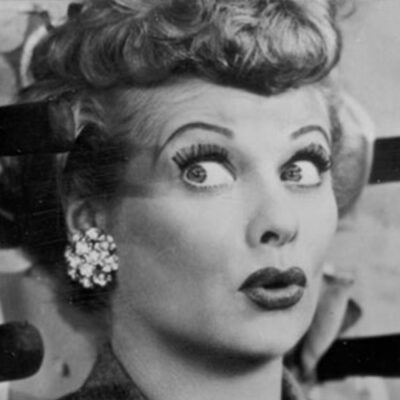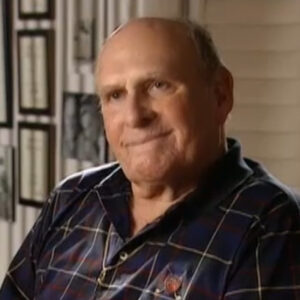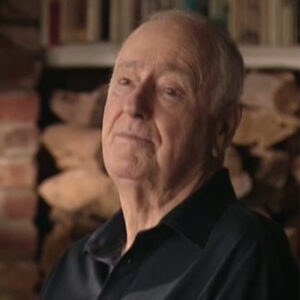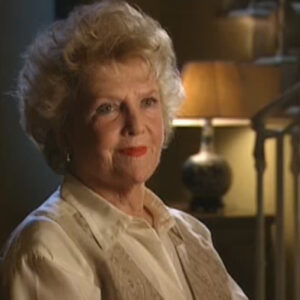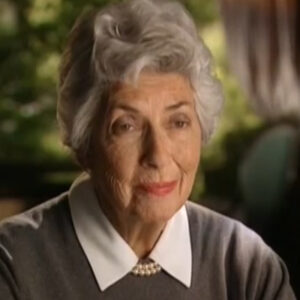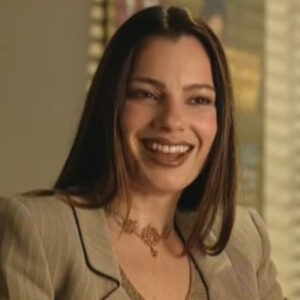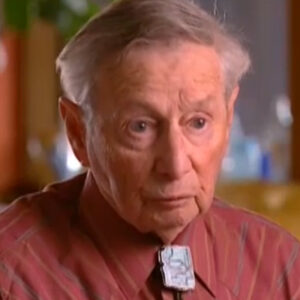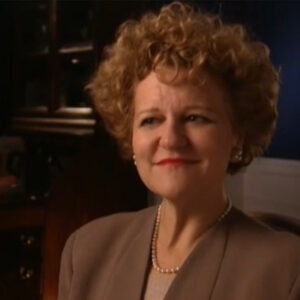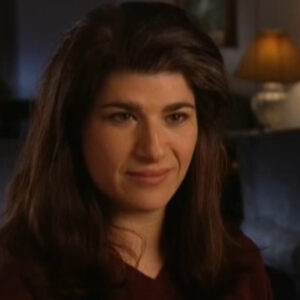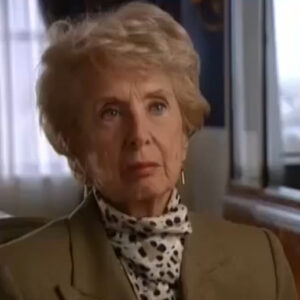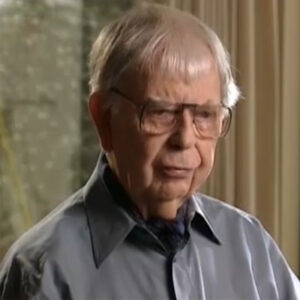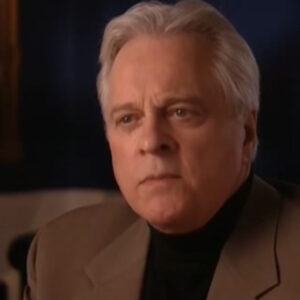Interviewer: Mark Colvin, this is the movies that brought Lucy and Desi together. Were you there when they met? When I watched. Were you there when Lucy and Desi. Matt?
Van Johnson: Oh, yes. It was firecrackers. Desi and I ran a show called Too Many Girls at RKO bought the story for Lucille. And so she came to see the show, what she liked right away. And George Abbott, who was our wonderful director. Mr Abbott chose five of his favorites and put us all a super chief to go to California to make the film. No, I never Benalla, New York or no port before. And on the way out on the train, they were all taking bets as to who Lucille was going to fall for. And everybody sort of comes second call for Van. I said, no, we’re too much alike. She’s gonna go for the opposite. Naturally, the rest is history. So I went for Desi. And that was a great combination for many, many years. But she was that was my first meeting. And my first studio I landed in California was never, never land. Then I don’t like much what has happened to it. No, all those chocolate milkshakes and those donut shops and waffles that shall go right to food. And then Lucille. And does it take it to the beach? And that brought me to the studio. You see, the first one I say worker was Carol Lombardo walking down the street. It was a lovely studio on those days. And Lupi Valera’s Irene Dunne. Charles Laughton. Wonderful actors. And I’ve seen all my life and new on the screen, never realizing I’d be working with them on lots of them every day. And that was the beginning of our relationship with Lucille and Desi.
Interviewer: So now tell me again what the chemistry between those two people when they first got together.
Van Johnson: Well, you could see the fireworks suddenly and the sparks. They complemented each other and she fell in love with him and his accent on this dark, dark beauty. And he came from a very fine family in Cuba. His mother was a lovely, lovely lady. And he naturally brought her brought her to California. But we saw it happen. There was just they just clicked. Many years later, they crashed.
Interviewer: Did you think it would last?
Van Johnson: Forever! Forever. They complemented each other so black and white, dark and light.
Interviewer: Tell us a little bit about the story of the movie, Easy to Wed. What’s the premise? Who is she? Who is he? Who were you?
Van Johnson: Oh, do I have to look easy the way I felt? Remember what I was Kanan when was there? And of course, Lucille asked as to Esther Williams. So her body myself, Ben Blow, all those wonderful character actors. I’ve forgotten what the oh and Buster Keaton stage that sequence was me shooting a reduction of the dog whenever they need a laugh. They cut to the dog again. You know those cocker spaniels. It’s like cutting them. Rona Loy and those thin man pictures always got a laugh. Cut it to Ashtar. But I don’t remember what the plot was. It was pretty thin, but it was all beautifully done. Musical.
Interviewer: OK. So now you we just watched the scene where you come in and get Lucy’s character drunk in order to exit the relationship. Can you describe that scene that we just watched?
Van Johnson: Well, of course, Lucille was a past master of timing and reading a line, you couldn’t have learned something after a day’s work without one little. Do we know she’d be going into that big, big series with a dozen a year later. But she she knew from A to Z what the what to do with the day’s work. And the scene was how to get a drug. At the end, I thought we were doing a two shot. And unfortunately, she made me laugh so I couldn’t stop giggling. And the directors have cut. What is that? I said she just made me laugh. I’m sorry, Mr. Bozell. Lucille got a noise as a never, never do that again because it was tough for her to get that spontaneity back again. So I learned a lesson never break up. But she did make me laugh like Spencer Tracy is to make me love Mickey Rooney. Mickey also made me cry. It was a brilliant actor, but it was a great studio in those days, MGM. And that was the first going into color. I started putting makeup on. Now, look.
Interviewer: All right. Let’s go back to Desi for a moment, because you and he were actually very close friends.
Van Johnson: Why? Yeah, he’s okay. No, we weren’t that close. We just were in the same show together. I understood it. Does it matter of fact? Imagine me. This blond looked like the German with the blond hair. Of course, I learned the part in a Spanish accent and I understood it. Nicole Ma, who was the lead, and Eddie Bracken, who was naturally the comedy Sadeh was one of. And I went on for Eddie for two weeks. I thought Dick Rochus was going to throw up. He saw what I was doing, but I said we didn’t close the show. But Desi, I got a call one man my about 12, 30. And Jerry White, the stage manager, says, All right, get down to the theater right away. You get the hair dyed and put on makeup. You’re going on the desert this afternoon. Well, I got that thing in the pit of my stomach. But maybe because fossil out of the pot and that one song where the boundaries are, I’m talking maracas, ale, sorbet, Contar, Ealey and been round. I mean know I mean I at two o’clock Daisy walks into the stage door. I think he’d been on the tower run a DeMarco that night before and he never knew when to go home. I could have kissed him. I said don’t ever do that. Hypocretin. I think the owners would have thrown raw eggs out, make it a magic name with this face dyed my hair black that they had to undress. So you’re going back in the chorus. That’s the end of that.
Interviewer: What can you describe his career as a musician, bringing Cuban music to the nightclub scene?
Van Johnson: Well, I’ve always been a big fan of Latin and salsa. I think it’s the most exciting music in the world. Next to the German leader. Oh. And Stanley Donen, I was in the chorus of power. Zola the following year had a very classy Paris. Right. Claudia Fine family. And they came to town and it took us to the Waldorf upstairs at the Starlight Starlight Roof. And Sylvia Coogan was there at Lenar, all my singing. And Margot, who was married to Eddie Albert. And I’d never heard that kind of music before except what does it was banging on the drums. And I just it was so exciting to watch. I mean, you couldn’t help it. From then on, I became a big, big fan of salsa. I think it’s the best song. And I think I started coming back. Not that I ever went out.
Interviewer: But describe it. You’re telling me somebody who wasn’t alive in the 40s. What was that meal you like? What was the nightclub scene that Desi was a part of? Where was what was it like when he would go out to work at night and play in these clubs? What was the atmosphere?
Van Johnson: Oh, I think why was he playing in the MARTINEC? A la conga? That was Nancy Costello, who was she was the star of the show. Was another one of the stars of Tuba, the girls. It was fabulous. And she taught me a song and a few other things, but she took me to Martinique and La Conga. And I don’t think Desi was playing any clubs in New York at the time. He was doing too many girls. After after he went on a tour, then he was at the Roxy. Lucy was in that act with him. Then he went on a show. Tour with her, then he got his own band. I think.
Interviewer: The Vaudeville show that they were in together to launch. I Love Lucy to go from my favorite husband to I Love Lucy. They created this vaudeville act. Did you see that show now?
Van Johnson: No. Thank God I got all I want. What? What?
Interviewer: All right. Now we’re going into Hollywood. You there are these beautiful home movies of you swimming in their swimming pool and diving into the water.
Van Johnson: Have you got those two? I don’t have to sit and watch that again.
Interviewer: Well, tell us what it was like to go and visit them at their ranch in China.
Van Johnson: Oh, Lucille bought the ranch herself as a bachelor girl. It wasn’t a big thing like LBJ as it was just like 10 or 15, 20 acres, which is plenty was way out in the valley. San Fernando, beautiful little one story house without an old swimming hole type of swimming pool. And she had vegetables, most obviously was the love to garden. And we’d and we June Havoc and Iwai invited out the first Sunday and June was at RKO also. So and Lucille couldn’t have been more hospitable. And she asked us out for the day. And that’s when you saw me trying to imitate Esther Williams diving into the old swimming hole. That’s long before Lucy and Little Ricky came along. But no, she was a great hostess. And I said it. It was every hour on the hour she came out of the kitchen with another big tray of order. There was a big trifle of huge homemade potato chips. And I admit it was a big, big bowl of a dip then. I’m not a lady. She came out with something else. I find out. Joan have exactly. Lucille, this is the greatest drive I’ve ever been to anyway. But it was a great hostess and a great housekeeper.
Interviewer: Was she a funny person in her casual life?
Van Johnson: She couldn’t help Gibby. She didn’t try. She wasn’t one of those obnoxious comedians. It always going to be on to be funny. She didn’t try. It was just natural. But no, no, she just let him slide out of the corner about once in a while. No, she is a baby blues.
Interviewer: I guess a lot of people who didn’t know her assume that she was the Lucy Ricardo character in her home. But it seems like people who did know her think that’s not true at all, that she wasn’t the scatterbrain.
Van Johnson: Oh no. You know, she. Well, she she was Queen of the Bees and RKO. Well, I first met Lucille and who knows, it wound up buying a studio and owning it. She couldn’t help but absorb ship jobs and learn so much. She became the brain and desi as well. Who invented the three camera? When we did the serious. But Lucille Little did we know she had a great mind and a great brain and a very moral lady, I never heard her swear or talk about anybody or rip them up the box. It just was one of those. Good, good ladies. She did a lot for me. She pushed me. We were doing too many girls. She said of the director. Mr Abbott put the big red head next to me in every dance number of a big tent, and all of preview cards came back that for a slide. And they said, Who’s a big redhead dancing next to Lucy? That was the beginning. And she showed me all those cards either. What happens next? She said it’ll happen without her trying to make it. And look at me. I’m sitting here talking about it today. I’ll tell you why.
Interviewer: All right. You mentioned Buster Keaton. Is it true that she knew Keaton and that he taught her certain things about comedy and worked with her?
Van Johnson: Desi?
Interviewer: No. No. Keaton. Buster Keaton.
Van Johnson: Oh, Buster. He had nothing to do with her stuff, dear. No, says my three days with the dog. Shut the duck.
Interviewer: But I guess I had read that early in her career. He worked with her and advised her about timing and.
Van Johnson: Who buster?
Interviewer: Not true?
Van Johnson: She could have taught him timing. Not that he was a little. He was a great, great artist. But. Oh, no, Cheryl. The book Lucille. She knew she invented timing. Oh, goodness. All those big baby blues. No. In fact, Buster had nothing to do with any of her stuff. He was under contract to MGM Records. Mr. Mayor was always very loyal about keeping those husbands. So we call them. And Buster had his own office. And whenever they needed a laugh or a equals, Buster was on the set designing it. No, he didn’t have to teach Lucy time.
Interviewer: Why do you think in her movie career, she got sort of she reached a certain level and she never pushed past that to be a star. Why do you think that happened for her? And yet she was able to go on to such stardom on TV?
Van Johnson: Well, by then, a TV was the big important thing and had come into all of our lives, that little box. But I thought it was sort of so it was a star from the very beginning. With kind of the besom of RKO. When I first met her, then she went on, I thought all the pictures she did. She was the star. Like a picture girl. She did with Hank Fonda, which is that becomes a lame nightclub singer. He was the busboy link little pig. So I think it was a Damon Runyon story. But to me, she was always a star. She knew everybody would see a difference with her. Carolina later vilified it because there was a woman I adored. Everybody did.
Interviewer: But even in easy to when she’s the number two lady, she’s not the number one lady. She’s not the one who’s getting together with the leading man, right?
Van Johnson: Yeah, I guess so. Secondly, would I wound up with Astor? I always wonder what Astor or Joan? Oh, I don’t know. I kind of know. I can answer that. She was in a special category herself, Lucille. I think she wanted a cannon. No, I don’t remember and don’t want it again. Go.
Interviewer: Do you think that Hollywood misunderstood her potential as a comedian? In other words, do you think Hollywood saw her as this sort of beautiful woman who wasn’t capable of taking a pratfall because she was too pretty?
Van Johnson: What?
Interviewer: The notion that you couldn’t be glamorous and funny at the same time.
Van Johnson: Yes, Caroline nodded. There’s a few field of very few like that, but she could be a lady and she was a lady. God knows what she could do. A pratfall, a beautiful Irene evening gown. That’s a tough question. Next.
Interviewer: All right. Ten years have gone by since too many girls. Now we’re at the end of the 40s.
Van Johnson: I don’t know from dates. I know of my birthday.
Interviewer: And Lucy and Desi have been married 10 years. And there’s problems because they’re always apart. And it’s my understanding that their desire to work together was so they could help fix the marriage.
Van Johnson: Oh, I don’t know. That was personal. I never know there was a problem. They just naturally fell into that series. And RKO when she wound up buying a studio, or does he invent those three camera shots? I don’t know. I don’t know.
Interviewer: Tell me more about that. Does these innovations in television?
Van Johnson: Well, Desi became the big powerhouse as his production as well as those sales. And in the old days, they will take a long shot, a media over the shoulder up. And he decided what a waste of time would have it. Break the camera and the lights over there is. Why not put three cameras out to get the medium long shot? Which he did. And it worked very well, as you know. Karl, find my old camera man from Metro was the one who did most of the shows. That’s all.
Interviewer: You were in the audience for the second taping. Be a pal. I believe it says in the book. Do you remember going to watch the show from the audience tonight?
Van Johnson: Did I?
Interviewer: The filming of Lucy.
Van Johnson: Must have been Mickey Rooney.
Interviewer: Not true.
Van Johnson: Watching what show?
Interviewer: Watching the. I Love Lucy show while they were filming it. From the audience. Not true.
Van Johnson: I don’t remember that one. OK, let’s look at that half hour. All right.
Interviewer: You were in one episode, The Dancing Star. We just watched it in the other room. How did that come about? Did Lucy ask you to be in it?
Van Johnson: Yes, she did. She wrote the script. They wrote the script. And we were very close socially. And that was what she called me says, how would you like to do a dance number with me and one Lucy’s? Well, who would turn that down? I don’t know who thought of it.
Interviewer: And was it a week long rehearsal process?
Van Johnson: Oh, yes. Because we rehearsed like four days and a shot on the 5th. Oh yes. Rehearse four. Shoot one.
Interviewer: What was she like on the set?
Van Johnson: The mind is always going. You can see those those wheels going. Barry Sullivan said something very interesting. Just on a picture of Betty Davis and that one with Loretta Young right afterwards. And I said, gee, Barry, what was it like working with two great ladies? And I finally worked with Lerato myself as well with Betty Davis. You couldn’t see the wheels going all the time in the head, you know, thinking, thinking the wheels with Lerato. He said, you know, the wheels are going up there, but she doesn’t show it. I thought was an interesting observation because Lorraine is one of the smartest ladies in the business also.
Interviewer: So how would Lucy interact? Would she direct you make suggestions, direct other people?
Van Johnson: No, I think we always had a director, Kathy, who was always one of the Yacht Club Boys. That’s before your time. They were singing group. I think there were four of them in the old days that the. Hurricaine or the Paradise nightclub? My God. I do go back. But let’s see. The material was so powerful it really directed itself. So was why was I know everything was on cards. What she said. That’s a long speech. Learn that speech and say, tell her what? Tell her what not to bother with. I learned everything. She was thoroughly professional. She knew her business when she stepped down that stage of the monies, she was ready.
Interviewer: And is that unusual at the time?
Van Johnson: No, I’ve never worked with anybody who sloughed it. No, I’ve always been that all those ladies at Ms. You have a thoroughly professional. They had to better stay up there and please, Mr. Mayor. No, we all were. It’s a different breed today. This is for all those cue cards came in. No. With Angela was one of the greatest ladies in the business. Why? Because she’s been so loyal and faithful about getting jobs and get shots for her old classmates at MGM. And she was always a joy to do a murder. She wrote a joy to be with Angela because the last time I did, I had long speeches, I think was Hanigan this week. I wound up in a coffin looking like Mickey Rooney. I was too big for the coffin anyway. When I got out of it, I said, Angela. That’s awfully not very comfortable. And now she said, don’t worry, you won’t notice it when you get out the next time you can buy it for half price alone, which I didn’t. But Angela. So she said. So I came on the set one day, a lot of speeches learned and always went to her trailer in the morning on the set, said good morning, how glad I was to see her again. I love you. You love me. I said, Oh, Angela, all these words, she’s at all. We do it all on cars now. He made it so easy for everybody.
Interviewer: How about the dance number when you and Lucy do the little soft shoe together?
Van Johnson: Why would what did we do?
Interviewer: He did the soft shoe dance number together. Yes. She’s trying to get into your act. Was that choreographed? How did that come about?
Van Johnson: Now, that was a male ad lib. All that some of the Talor on my neck. Don’t ask me where I got it from. It was never much of that much of a hoefer to lift legs. But the dance number was staged by Ramoray Prince. Someone like that, I’m ashamed to say I’ve forgotten he was the great dance director who did too many girls. But no, we we we were taught to dance by someone on the same to serve a garden.
Interviewer: And did not come easily for Lucy.
Van Johnson: Oh, sure. Everything came easily for her. She made it look easy. And that’s the technique. How much longer before the audience goes to sleep?
Interviewer: All right. Lucy, could you cut the Zika outbreak when you grow again?
Van Johnson: Oh. I was in a big crash. Well, what Lucille did during a four months, I was out here rolling. I remember how loyal and sympathetic Lucille was. I was in a big crash outside of MGM. I was just starting a picture called a guy named Joe Spencer Tracy, Irene Dunne myself. And I was not that well known. I was just starting to get there on the Metro MGM. But this was all a. The whole top of the head resolve of the big fracture. I remember I lay in the Gulf of forty five minutes before an ambulance came to get me. And then he did it looked at me. They started to pull away and said, I never lost consciousness, being a very curious fellow. So I said, wait a minute. What’s the matter? Where are you going? He said, I’m sorry, we can’t take you. You’re in the other zone. I said, where’s the other zone? He said, across the street. I said, pull over there and I’ll meet you there. I crawled over with my brain is I am what was left left of them. And that’s the only reason I’m sitting here today. Different zone. Different area. Across the street. So they put me on hospital finding that at a time. And every day, five, four, four months. Lucille Ball suddenly one long stemmed red rose and my when I had three cracked nurses. And believe me, they help. And they were put each one each day. The big days. By the end of four months. Much. Yes. There’s quite a collection. But she was one of those thoughtful ladies who I wasn’t allowed any visitors. But she always said the rose I knew she was thinking about. And that helped me get well. Also, the fact that Irene Dunn and Spencer went to the Mr. Merit’s. Let’s wait for him. They wouldn’t wait today because they couldn’t afford to. And I wasn’t that well known, as I said before. So when that when Irene and Spencer came to the hotel hospital, they said they’re waiting. They’re going to wait for you. It made me get well. And it was a light at the end of the tunnel. It was my incentive to get up and get out of here. With a bunch of roses.
Interviewer: Now, her kindness toward you, I guess, extended in a professional way. She helped you get hired at the end of too many girls. You were going to leave town. Your friend said.
Van Johnson: I was going to leave.
Interviewer: After too many girls.
Van Johnson: Oh, yes, she. Yes. I think I allowed myself six years to get somewhere. That was my sixth year. Who do you know? Who are you to put a time limit on it? Just don’t go back to Rhode Island. Don’t give up. Go back to New York. And sure enough, Georgia. But put me in, pal. Joey. It was not a big part of what I call him AHIP, which means a half assed principle. I had a song and a dance with Jonah. Have I got about 10 or 15 lines just enough to get noticed. And that’s how I got sent to Hollywood. But Lucille was the one who said, don’t put a time limit on to go back and they’ll find you. Which they did.
Interviewer: Now, did you have a TV in the early days of television when it was a new thing coming out? Did you personally own a television set?
Van Johnson: Oh, no, no, I don’t think I even had a radio. I had a typewriter.
Interviewer: How did early television affect your career personally and P and the movies in general?
Van Johnson: I don’t I never watched the damn thing. I’ve got a big TV man. I’m a big book man. I read five bucks a week, as I told you before, but it didn’t affect race.
Interviewer: But isn’t it true that Hollywood had to adjust to television? People were staying home. They weren’t going to the movies so much. And the movies had to adjust to allow for.
Van Johnson: Jesus. What is a find her? Was. I think when TV first started, it came on the scene. It was such a big novel that people did stay home and the theaters and the movies did suffer. Then I got to be everyday stuff and they got used to it. And the pictures, I think, improved the movies. And that’s when they started coming back to the movies. But it was no serious danger. I don’t think I’m still here.
Van Johnson: Lucille likes to work with the same actors. Doris Singleton is someone within this episode, The Dance.
Van Johnson: Yeah.
Interviewer: You tell us about Doris.
Van Johnson: Doris. Well, I never got to know her. In those days, The Wiz came into rehearsal. The studio rehearsed, shot it went home. And maybe you see it when the next two hit a couple of years later or whatever, like Mary Jane Croft and all those marvelous character actress people like him. Well, no, there’s no morals, but I don’t know. I think about them very, very often because in those early Hollywood years when Hollywood Boulevard was something walk up or down and I went to the Chinese Grauman’s Chinese to put my footprints in Spencer Tracy’s footprints. Little did I know that my own will be there one day. I never went back to see where I think they’ve been buried by the box office. Gommers, Chinese and Egyptian, but was the Hollywood Boulevard and Hollywood period, that was very exciting in those days. I don’t know much about it now. I haven’t been back there so long because I’m a native New Englander and I never could get used to that sunshine. I’ve had to get up at 5:00 in the morning and drive to the studio. When the doc called home and the dog said it was the California sun was on its own. I saw the sun rise when I took my kids to Sunday school and church on Sunday, which I was very faithful about that. I think that’s important.
Interviewer: Did you witness the end of their relationship when they did finally decide to separate and then didn’t you go on to be Jesse’s best man when he remarried?
Van Johnson: Did I go on and what?
Interviewer: Were you his best man when he remarried?
Van Johnson: God, no. I wasn’t living the country. I thought I was living out of Switzerland.
Interviewer: What memories do you have of them at the end when they decided to separate?
Van Johnson: Desie, separate. When does. Well, we were all very sad about it. But as Lucille said, the last three years have been a nightmare, which I never question because she was a lot of gossip and she never, never ran as a down. But I think I think the success went to desis had they couldn’t handle it. He went crazy being a flamboyant Latino. He couldn’t help. But he was a marvelous man. That’s the end of her. When is this gonna end?
Interviewer: When my boy story the way Billy reads or why he wants you to tell the Billy Grady story.
Van Johnson: Thanks, Alan. My manager, Billy Grania story was one.
Interviewer: After Warner Brothers. He said after Warner Brothers.
Van Johnson: Of course I know what the hell are you talking about.
Interviewer: Going back on this Supercheap?
Van Johnson: What?
Interviewer: I think it’s when he was talking about is how you.
Van Johnson: Oh that one, oh yes. Thanks, kid. You get 10 percent instead of 30. I was just finished my first movie contract at Warner Brothers. And they didn’t know what to do with me, so they left to go after six men. I mean, what you know, what to do with his face. They died by here black. And I’m covered by freckles. And they put me in a B movie called Born for Trouble and I played a newspaper reporter named Schoop. Well, isn’t that original anyway? The leading lady was a fabulous Faye Emison who migrated to my Orka and six months or so after that, the production manager said, you know, we’re not just picking up your option. I said, that’s what I’ll give back to me. All right. Never should have left. So I called no sale and told us hasn’t come to Chasen’s tonight. That is, you know, I’ll take it a farewell supper because I’m leaving in the morning on a back. I love Supercheap. And we’re sitting at the bar waiting for our table to be ready. Bouffe. And in walks Billy Grady, who was the casting director, a talent scout for MGM. And no, sir, I’ll never forget. SAT down about this huge, beautiful Lynx coat on. This is Billy. Come here. This kid’s gonna go back to New York in the morning. He just finished the contract. Is well, it’s over. You make a test of. He’s at our home every now from New York. Pounds L.A.. Yeah. He’s a well-loved stop by MGM on the weight of the train. See me? So I stopped by Billig Raiders office at MGM on my way to the train. And of course, I never made the train. I stayed for the next 20 years, 20 of the happiest years of my life. Because I’m sorry to say, the old studio system is no more. They would take the young ones like myself and train them and worry about them. He had everything in that studio. The people who taught us how to speak on a walk act, the hero hospitals, school doctor’s voice, coaches, wonderful operatic coaches for people like Murray, Alonzo, FCL, Pinza, Katie Grace and Jane Powell, all beautiful voices. William Burns, our great drama coach, and Gertrude Fogler of the speech thing. It was a city inside of another city and we had the best dentist and the best back man in the world, doctor. So great together as they are. Dr. Mitchell, he’d walk up and down your back him by walking with Garbo. She was just leaving because I got the shakes. I didn’t know he’d become neighbors and friends back in New York. But it was a great, great world, MGM, because they didn’t make studio like that anymore. And a few months ago, we were called by that great magazine, Vanity Fair, that Mr. Graydon Carter had us all the ones he chose to go back to MGM on the set and be photographed what we call a class picture. And not great camera girl, Annie Leibovitz, marvelous, talented lady. And we’ll all sent the limousine when they put Dobie into the back door. And I followed Bobby’s stark on him. Got the audience LeBeau first because all the kids screen around. So then I got out and we all went in and kissed and hugged and everything. And a few of us that are left, they even had Gene Autry with was not trigger categories. And we shot this class picture. And. Afterwards, we broke up, I said to June, Allison, June, come on, let’s walk around to see our old Rustigan building. She said, Don’t. It’s all offices. I thank God, she told me, because I wish I would shed enough tears because that was our home for the 20 years. I never realized how much of a great housekeeper Mr. Mayor was. There were trees and flowers and patches of grass and lawn, and the streets were immaculate. No stuff lying around. You see what it looks like now. It’s not just MGM, but all the studios just have to have those awful trailers outside caravans. They act as a changin of the couldn’t take a room on the sets. You can’t go home again.
Interviewer: Now, how did you feel personally when Lucy and Desi bought RKO, the studio that had previously fired them? Was that it a triumph? When Lucy and Desi bought. OK. Oh, yes. Was that did you feel like. All right. They had triumph somehow.
Van Johnson: Well, it wasn’t a triumph for me, but it was a great story of success. Fellow sailor, does he? Because. Well, little queen of the business he winds up on in the joint with all those great actors and people in the country which are no more. As I said, the studio days are gone. But they couldn’t help. They just had said, see? When you finished all those years of the series, what did you do? Because it must have been a terrible, empty feeling, like losing a child. She said, You want to know what I did all along? Long day as it is Washington. I had a beautiful home next to Jack Benny and Ralph Roxburgh Drive Beverly Hills and I clean house from top to bottom. And believe me, when she claims she cleaned. So it was worse than Crawford, General Motors and Marlena, who I was called the Ajax Queen because they were the scrubbers. But that was how low seal occupied her time by scrubbing and cleaning the house or talked about. I believe it was plenty to scrub. Not that it wasn’t always clean.
Interviewer: But is it your sense that she did not enjoy retirement?
Van Johnson: No. She wanted to work. She wanted to work. She said, I better get back if I forget who the hell could forget Lucille Ball. I remember being with the royal family in London one night. Don’t ask me how I got in there. And they said after dinner, they said, Princess Margaret, the family. And they said, I’m going to watch Lucille, Lucy and Desi. And I watched the royal family. What’s in that box? More than I watch the show because they were hysterical either. Wouldn’t say a love to get a shot of this. And it was wonderful to watch these royals with a hair. Laughing and screaming at whatever Lucille did. She was universally loved because Comikaze forever and everywhere. Any language, mostly German.
Interviewer: What do you think made her so special? Was it her face? Was it her body? Was it her voice? What what was it about?
Van Johnson: A combination of all of them who could escape those big baby blues and her voice and that timing and those tanks? All she had was it was this or this. Looked at the camera, would cut to her for the closeups. But she for a girl who started out as one of the Golden Girls in the fall, Eddie Cantor. She came a long way. Gotcha. Thank you. Got a laugh.
Interviewer: All right. Let’s take a break.
Van Johnson: A break.
Interviewer: I just to.OK, go ahead. When they got married.
Van Johnson: When those Salem days they got married. We all thought that was gonna be forever. You could take those sacred vows. We all do it seriously, I hope. So when they broke it, finally, it was so disillusioning and disappointing and sad because of ever two people belong together. They did. But Gary Martin proved to be a great husband, too. And he was just what Lucille needed at that time.
Interviewer: But do you think it’s fair to say that she’s still always loved Dessy, even years later, he was still a part of her life?
Van Johnson: Well, I think after being married all those years, you can’t just suddenly dismiss your spouse the one year or you divorced, whatever. There’s got to be a place in there in your heart. Once in a while to think about or whatever. I know I do about mine can’t help it. I have no malice.
Interviewer: But they also have this professional collaboration. He was so good for her professionally and she was so good for him professionally. It was almost more than a marriage. Do you think that was something she could never replace?
Van Johnson: It was Amos Amanda like Martin March. That’s how far back I go. Oh, well, I couldn’t imagine losing without Desie or vice versa, but they had it. They’ve done enough years of civil good. Those old shows, they’re still together up the.

